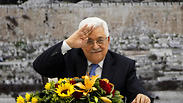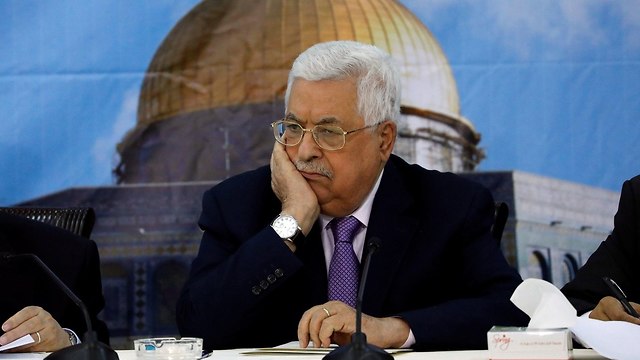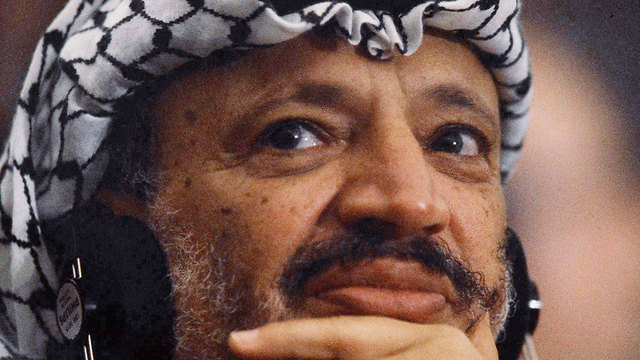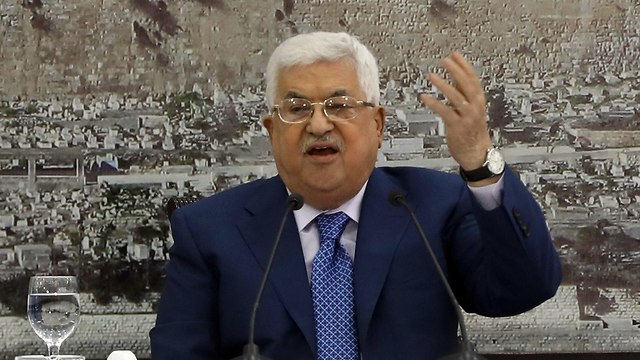

Fatah leaders arm themselves ahead of Abbas's possible departure
It is reported that senior PA officials such as Jibril Rajoub and the head of Palestinian General Intelligence Service, started to affiliate themselves with armed gangs in the West Bank to wield leverage in case battle over position of next PA leader turns violent; Two possible scenarios—establishment of several centers of power without a centralized leader, or chaos that would benefit Hamas.
Senior leaders and officials in Fatah have reportedly started to align themselves with various armed groups in the West Bank, in preparation for a possible departure of Palestinian President Mahmoud Abbas, and a possible violent struggle over his position.
When Abbas departs, there will be two possible scenarios at play—the Palestinians will either divide the positions of power among themselves, or instigate violent conflicts and riots.
The group of senior Fatah officials in question are those who see themselves as worthy candidates to be the next Palestinian leader, taking over at least one of Abbas's three positions—the president of the Palestinian Authority, the chairman of the PLO and the chairman of Fatah.
The alliances with armed factions are supposed to provide the candidates with firing power in the event that the impending succession war will involve violence and the use of weapons.
Among Fatah officials who have already attained the support of armed gangs: Jibril Rajoub, who also serves as chairman of the Palestinian Football Association, Head of Palestinian General Intelligence Service Majed Faraj, Mahmoud al-Aloul, who is deputy chairman of Fatah and Tawfik Tirawi, who was head of Palestinian General Intelligence in the West Bank during the Second Intifada. Some of them have already begun collecting weapons for their relatives.
The majority of the armed gangs are positioned inside the West Banks's refugee camps, and are comprised of refugees from the al-Aqsa Martyrs' Brigades, the military wing of Fatah during the Second Intifada.
Tirawi, for example, has a great influence over refugees in the Balata camp in Nablus. Faraj, who grew up in the Deheishe Refugee Camp in Bethlehem, is still considered a powerful figure in the camp. Rajoub has power centers in the Hebron area and Ramallah, and al-Aloul, a former leader of the militant faction of Fatah, Tanzim, still maintains extensive ties with various sources group.
There are a few scenarios for the day after Abbas is gone. One possible development is that a stable Fatah coalition will be established in which the positions of power will be divided among several leaders, and will no longer be the sole responsibility of one leader, as was the case during the rule of Yasser Arafat and Abbas.
The second scenario is that the political situation will revert back to the Second Intifada days, when inner conflicts between the Palestinian groups deteriorated into violent clashes and chaos in the streets. Hamas might benefit from such a scenario and gain power in the West Bank, while Fatah members are fighting among themselves.
Mahmoud Abbas, whose health is deteriorating, still maintains his hardline positions, which, for the moment, isolate Ramallah from other power centers. Abbas sees the United States trying to destroy his life's work—his insistence on negotiations and diplomatic and non-armed confrontations with Israel.
As far as he is concerned, the Americans have taken the Jerusalem (and the recognition of the city as Israel's capital) and refugees (with UNRWA's significant budget cuts) issues off the table, and are now trying to split the Palestinian arena into two, while delivering Gaza on a silver platter to Hamas.
Sources in Fatah's leadership fear that Abbas's "all or nothing" policy, as seen in his stubborn boycott of the US administration, will turn the Palestinians into a nonentity. There are senior Palestinian officials who try to convince him to soften his positions, but for the time being, to no avail.
On Wednesday, Abbas continued his aggressive line against Washington, condemning the PLO's statement to President Donald Trump's speech in which he said that "Israel will have to pay a higher price, because they won a very big thing…They never got past Jerusalem. We took it off the table. We don’t have to talk about it anymore.”
The PLO responded by saying that Trump's remarks is indicative of the "persistent biased policy toward the Israeli side, and the continued delusions of the American administration according to which, the 'deal of the century' can be made without declaring Jerusalem as the capital of the Palestinian state."
Hamas also criticized the US president's comments. "Trump's statements that Jerusalem is no longer on the negotiating table are impertinent and dangerous.
"The right response would be to revoke the Palestinian Authority's recognition of the State of Israel, and cease all security coordination with Israel. The authority should also break all contacts, including security contacts, with the American administration," Hamas concluded.


















